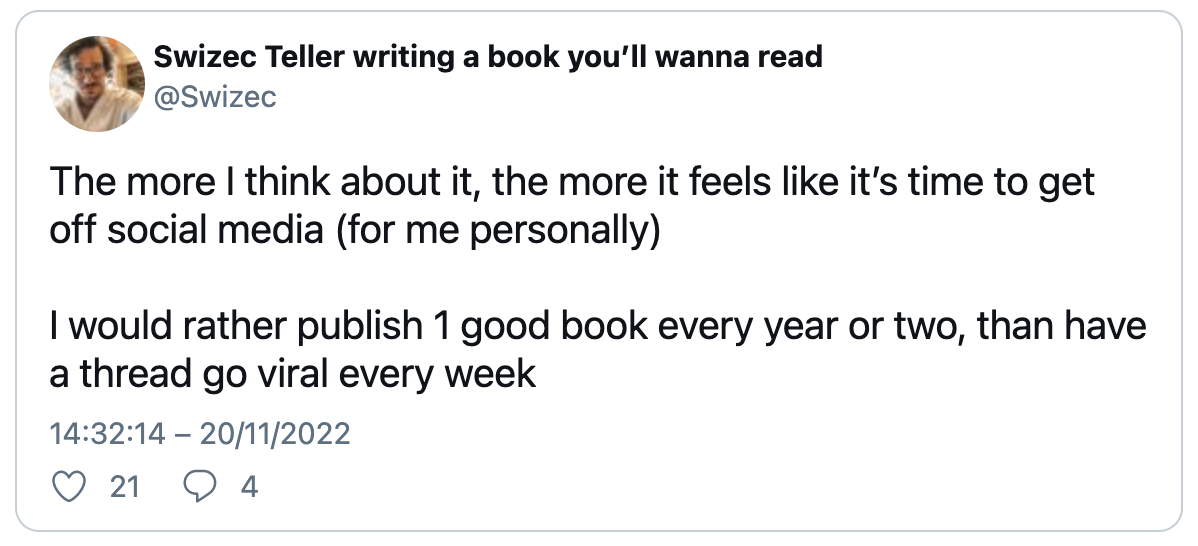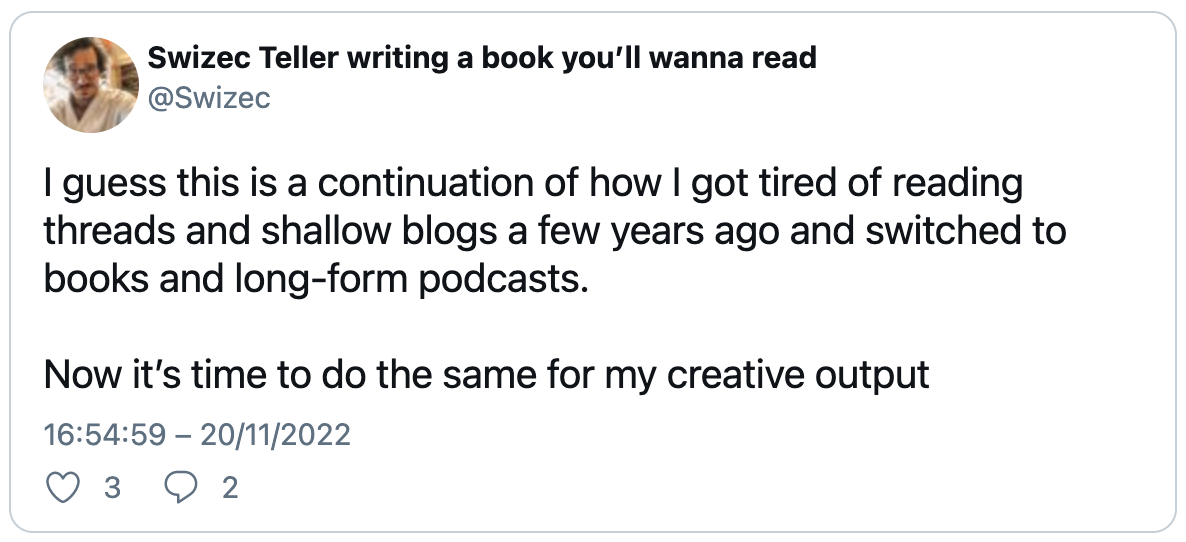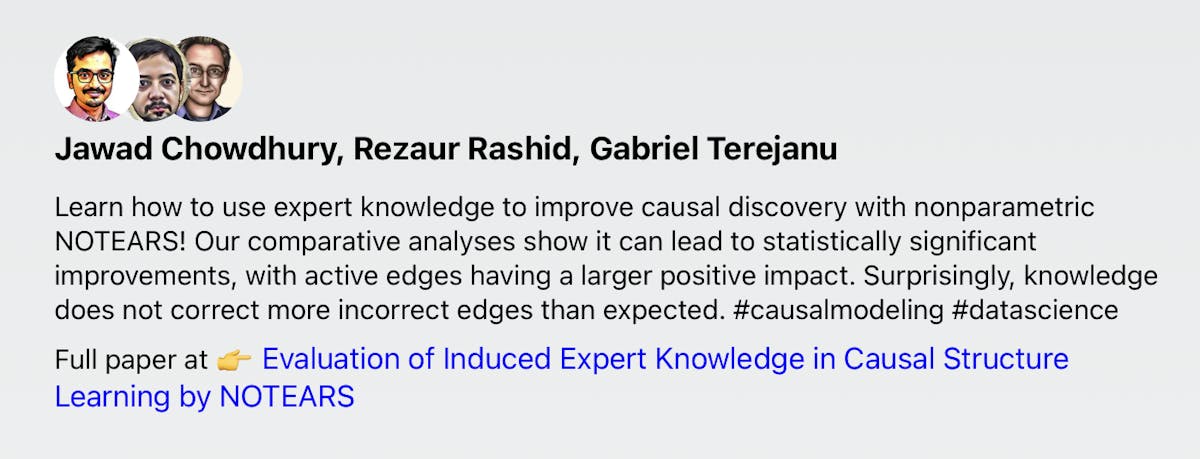ScholarStream.ai is a project I built over the 2022/2023 holidays to explore modern AI tools like the OpenAI API and ChatGPT. This is the only page not written by AI.
The project grew out of my frustration with modern social media.


Social media increasingly feels shallow. The good info just isn't there (anymore?).
I tried reading more academic papers, both in and out of my field (software engineering), and that was wonderful! Even terrible papers felt more informative than the deepest twitter threads.
But finding papers to read was a drag. I love arXiv.org but the level of commitment the typical abstracts needs just to figure out if you're interested ... my brain didn't wanna. 💩
Getting AI to help
So I figured with tools like GPT, what if AI took the arXiv feed of papers and turned it into a Twitter-like experience?
It worked!
Compare this:

To the original abstract:
Causal modeling provides us with powerful counterfactual reasoning and interventional mechanism to generate predictions and reason under various what-if scenarios. However, causal discovery using observation data remains a nontrivial task due to unobserved confounding factors, finite sampling, and changes in the data distribution. These can lead to spurious cause-effect relationships. To mitigate these challenges in practice, researchers augment causal learning with known causal relations. The goal of the paper is to study the impact of expert knowledge on causal relations in the form of additional constraints used in the formulation of the nonparametric NOTEARS. We provide a comprehensive set of comparative analyses of biasing the model using different types of knowledge. We found that (i) knowledge that corrects the mistakes of the NOTEARS model can lead to statistically significant improvements, (ii) constraints on active edges have a larger positive impact on causal discovery than inactive edges, and surprisingly, (iii) the induced knowledge does not correct on average more incorrect active and/or inactive edges than expected. We also demonstrate the behavior of the model and the effectiveness of domain knowledge on a real-world dataset.
Yep, I am going to find way more interesting papers this way 😍
What the AI is doing
You can read more about how AI helped build this site on my blog.
In a nutshell: AI came up with the name, generated the logo, wrote the landing page copy, creates every avatar you see, and writes summarized abstracts.
Enjoy ❤️
AstrophysicsCondensed matterGeneral Relativity and Quantum CosmologyMathematical PhysicsNuclear ExperimentNuclear TheoryPhysicsQuantum PhysicsNonlinear SciencesMathematicsComputer ScienceQuantitative BiologyQuantitative FinanceStatisticsElectrical Engineering and Systems ScienceEconomics
Cheers,
~Swizec
 ScholarStream.ai
ScholarStream.ai